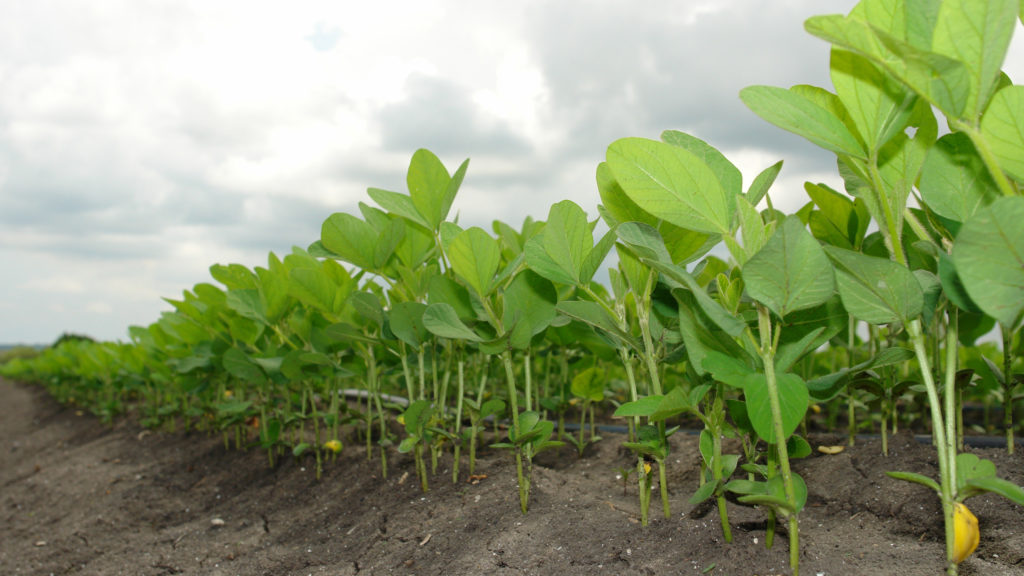‘Digging deep’ to strengthen the potato value chain in Pakistan
CABI in Pakistan, under its ACIAR-funded ‘Strengthening Vegetable Value Chain in Pakistan’ (SVVCP) project, is committed to improving the value chain of vegetables for smallholder farmers so they can improve their livelihoods. Dr Babar E. Bajwa, Project Leader, reports on the progress being made so far… Potato is a major crop in Pakistan with great…
Soybean farmers in Nigeria embrace new production technologies
By Solomon Duah, Communications Specialist, CABI Ghana There is a growing interest and enthusiasm in the production of soybean among farmers in selected states in Nigeria as new yield-enhancing and soil fertility-improving technologies are being introduced to them through an integrated farmer education campaign.
Embracing ‘stakeholder interaction’ for better business strategy and integration in Pakistan
Dr Umair Safdar, Development Communications Executive at CABI in Rawalpindi, Pakistan, looks at ‘stakeholder interaction’ for better business strategy and integration in Pakistan through the cluster-based Agricultural Transformation (CDBAT) Project… Stakeholders strongly influence a project’s success, particularly for complex projects with heterogeneous stakeholders. Therefore, understanding their influence is essential for project management and implementation.
10 highlights from 10 years of the China-CABI Joint Laboratory
2018 marks the 10th anniversary of the Joint Laboratory for Bio-safety established by the Chinese Ministry of Agriculture and Rural Affairs (MARA) and CABI. A decade of cooperation and knowledge sharing through the Joint Lab has helped to address Chinese and global needs for food and nutritional security, food safety, greater innovation and sustainable development.
World Food Day 2018 – Feeding our appetite for food security
By Dr Dennis Rangi – Director General, Development at CABI based in Nairobi, Kenya On this World Food Day 2018 the issue of feeding the world has never been in sharper focus. By 2050, agriculture will need to produce almost 50 percent more food, feed and biofuel than it did in 2012 just to meet…
PRMP in Pakistan: perspectives of government officials of Balochistan
By Dr Umair Safdar, Development Communication Executive, CABI Pakistan A Phytosanitary Risk Management Program (PRMP) in Pakistan is implementing a biological control program for pests of concerns in the Sindh, Gilgit and Skardu regions – with the aim of helping farmers grow more and lose less to invasive species. In Balochistan, PRMP has established a Biological…
Sowing the ‘seeds’ for the agricultural scientists of tomorrow
By Professor Jozsef Kiss, Szent István University CABI has a long history of nurturing talented scientists who will one day join the bank of researchers with the shared interest of trying to help farmers lose less of what they grow to agricultural pests and diseases. One only has to think of my colleague Dr Stefan…
Kerala flooding: Agricultural impacts and environmental degradation
Last month, the south Indian state of Kerala experienced record level rainfall. A huge 310mm of rainfall in just 24 hours, resulted in devastating flooding, causing significant damage to infrastructure, agricultural systems and human life. With over 480 people confirmed to have been killed due to the flooding, experts are now identifying the causes of…
Loved and loathed: the bitter-sweet attraction of the world’s cacti in sharp focus
Depending on which side of the fence you sit, cacti, in all its various forms, are either loved or loathed as ornamental delights or prickly pests that can devastate ecosystems, wildlife, and livelihoods. The issue was in the spotlight recently when an article published on the BBC News Science & Environment website ‘Prickly cactus species…
Exciting imaginations: New media formats to reach women and young people with agricultural extension messages
Campaigns create greater equality of access to information across farming households, but formats are as important as channels, argue Duncan Sones of the Africa Soil Health Consortium (ASHC) delivery team… The ASHC campaign-based approach explored the use of a variety of channels to build multiple media campaigns. ASHC has been testing the hypothesis that the…





